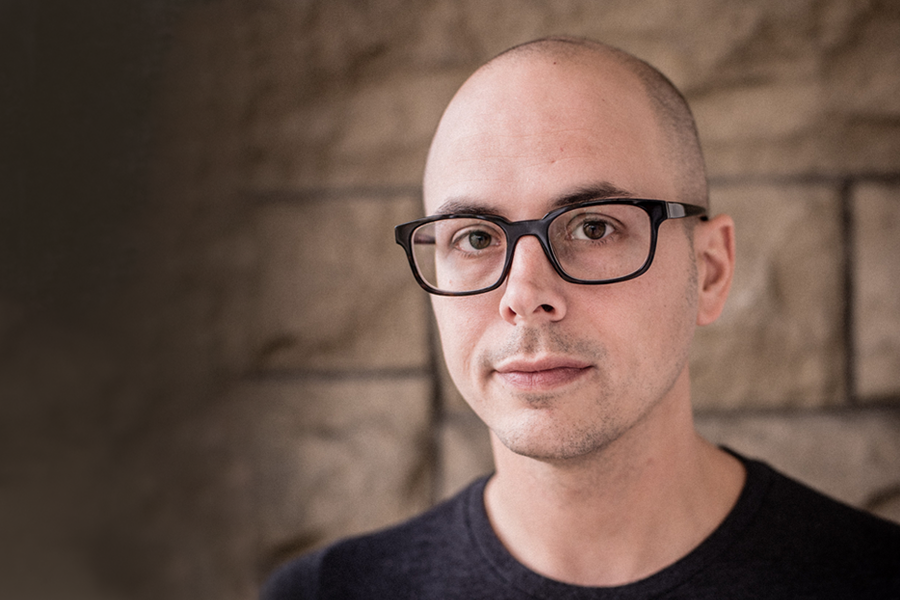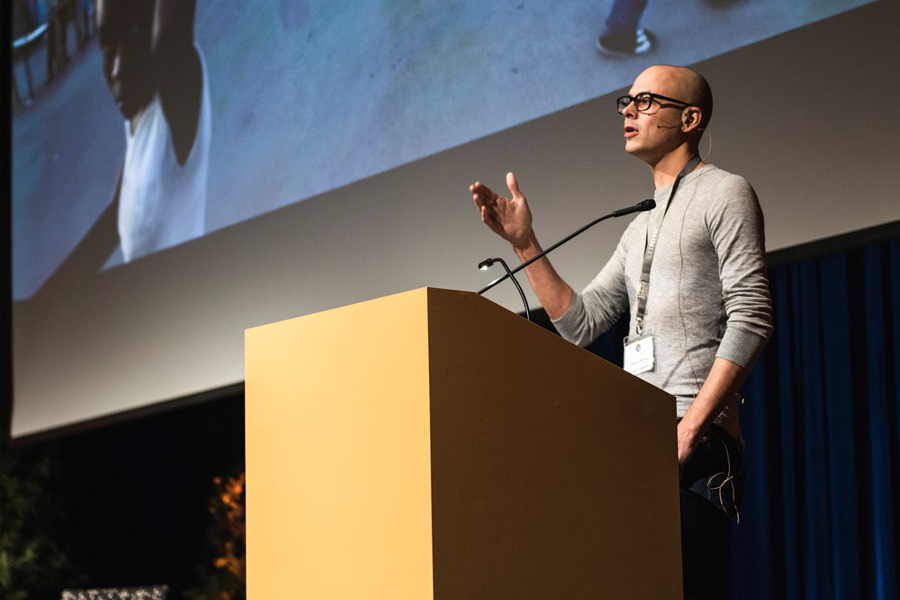
Scientific Fact and Fantasy
Alumnus Daniel H. Wilson is making a significant mark in contemporary science fiction by literally living in his head
By Deborah Taylor
Daniel H. Wilson writes books whose crackling plots combine technological expertise and thrilling imagination.
Those two potent elements were just what CrichtonSun, the estate of the late science fiction author Michael Crichton, and Sherri Crichton, Michael's wife, wanted for a sequel to Crichton’s classic, “The Andromeda Strain,” to mark its 50th anniversary.
New York Times bestselling author Daniel (CS 2003, 2004, 2005) worked on “The Andromeda Evolution” in secret for one year.
“The goal was to keep Crichton’s legacy alive by sharing his iconic world with a new generation of readers,” he says. “It was a one-in-a-million collaboration that worked out really well.”
Described in USA Today as a “compelling chronicle of imminent existential catastrophe,” “The Andromeda Evolution” was published in November 2019 to great excitement and excellent reviews.
Daniel is the prolific author of bestselling science fiction for adults, young adults and children. He has created techno-thrillers, non-fiction, comic books, a graphic novel and short stories, and won awards from Wired magazine, Barnes and Noble, and the American Library Association. He also writes screenplays of his works, hosted a television show on the History Channel and recently spoke to Algerian students through the U.S. State Department Speakers Program.
He relishes the diversity of projects his writings have generated.
“I’ve walked through a lot of open doors,” he says.
"I was over the moon when I got into Carnegie Mellon. I saw it was a place where the world of science fiction really played out in science, and I loved it. Carnegie Mellon was a dream come true for me as a science fiction lover."
Daniel didn’t plan to become a writer ― it didn’t seem “viable.” Devoted to both science and science fiction since boyhood, he majored in computer science at the University of Tulsa to merge both of his interests. But he wanted more than a career as a programmer, so he applied to Carnegie Mellon University, where he earned master’s degrees in data mining and robotics and a doctorate in robotics at the School of Computer Science.
“I was over the moon when I got into Carnegie Mellon. I saw it was a place where the world of science fiction really played out in science, and I loved it. Carnegie Mellon was a dream come true for me as a science fiction lover,” he says.
Immersed in CMU’s creative culture, Daniel couldn’t resist trying his hand at sci-fi writing. The result was “How to Survive a Robot Uprising.” Released in November 2005, its mixture of robotics expertise and humor made it a hit. Encouraged by his success, he wrote “Where’s My Jetpack?” and “How to Build a Robot Army,” both published in 2007. Suddenly, writing was a viable career, after all.
“I realized I didn’t want to be a roboticist and do programming. I was more interested in the theoretical stuff, the stuff that’s in my head,” Daniel says.
His first novel was 2011’s “Robopocalypse,” and director-producer Steven Spielberg came calling, buying the bestseller’s film rights.
“That’s when I stopped having to look back. Suddenly I had this whole new world open up,” Daniel says. “I didn’t have the same urgency about looking for a job in robotics.”
Since then, he has written “Amped,” “The Clockwork Dynasty,” and the sequel to “Robopocalypse,” titled “Robogenesis.” He’s currently “in the ideation phase” of his next novel, adapting one of his short stories for a screenplay and selling shows to television.
“I’ve been very lucky to be able to work in a wide variety of mediums. The wonderful thing about creating something is it goes out into the world and inspires other people,” he says. “Sometimes they circle back to you about collaborating on a project. It’s so much fun, it makes every day an adventure.”
Daniel’s doctoral program taught him that the path to success requires identifying your strengths and figuring out how they complement other people’s strengths.
“I’m working on a million different projects. But I write my code in English, a pretty user-friendly language,” he says. “My plan is to continue to live in my head and write it down.”
